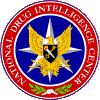ARCHIVED
![]() To Contents
To Previous Page To Next Page
To Publications Page To
Home Page
To Contents
To Previous Page To Next Page
To Publications Page To
Home Page

|
National Drug Intelligence Center New Hampshire Drug Threat Assessment Update April 2002 Other Dangerous DrugsThe abuse of other dangerous drugs (ODDs)--including the stimulant MDMA (3,4-methylenedioxymethamphetamine), the hallucinogen LSD (lysergic acid diethylamide), and diverted pharmaceuticals--currently poses a minor threat to the state. Teenagers and young adults frequently distribute and abuse ODDs on college campuses and at raves, rave clubs, concerts, and nightclubs.
MDMALaw enforcement officials report that MDMA is increasingly available. Most of the MDMA available in New Hampshire is produced outside the United States, typically in laboratories in the Netherlands and Belgium. The drug is transported to the United States via package delivery services and by couriers on commercial aircraft arriving in New York City and Boston. Local Caucasian criminal groups and independent Caucasian dealers obtain MDMA in these cities and transport the drug in private vehicles to cities throughout New Hampshire. MDMA typically is sold and abused on college campuses and at raves, rave clubs, concerts, and nightclubs. Sustained law enforcement activity in the Somersworth area led to the closing of two rave clubs, which substantially decreased the availability and abuse of MDMA in that area. Local Caucasian criminal groups and independent Caucasian dealers are the dominant retail distributors of MDMA in New Hampshire. According to DEA, in the first quarter of FY2002, MDMA sold for $7 per tablet at the wholesale level and $20 per tablet at the retail level. DEA reports that powdered MDMA is available in the seacoast region and sells for $150 per gram.
LSDThe distribution and abuse of LSD are not considered major problems in New Hampshire. The New Hampshire State Police reports a decrease in the number of LSD cases in the past year, and it appears that some LSD abusers are increasingly using MDMA instead. Most of the LSD that is available in the state is produced in California. The drug typically is distributed and abused by Caucasian teenagers and young adults on college campuses and at raves, rave clubs, concerts, and nightclubs. The drug typically is administered orally and induces abnormalities in sensory perceptions. LSD abusers may become violent, posing a risk to themselves and others. The Jaffrey Police Department reports that an increase in violent incidents may be attributed to high school students under the influence of LSD. In the first quarter of FY2002, LSD sold for $3 to $4 per dosage unit, according to DEA.
Diverted PharmaceuticalsThe diversion and abuse of pharmaceuticals are considered minor threats to New Hampshire. According to state and local law enforcement officials, oxycodone (OxyContin) and methylphenidate hydrochloride (Ritalin)--which are popular among teens and young adults--are the most commonly diverted and abused pharmaceuticals. Typically, pharmaceuticals are diverted via prescription fraud, the sale of prescriptions by some unscrupulous medical professionals, theft, and doctor shopping--visiting numerous doctors to obtain multiple prescriptions. Local independent Caucasian dealers are the primary distributors of diverted pharmaceuticals in New Hampshire. Pharmaceuticals are distributed at bars and other public venues. In April 2002 OxyContin sold for $1 per milligram of active ingredient ($80 for an 80-mg tablet) throughout most of New Hampshire; however, in Manchester it sold for $0.50 per milligram of active ingredient. Ritalin sold for $4 to $6 per tablet.
|
End of page.